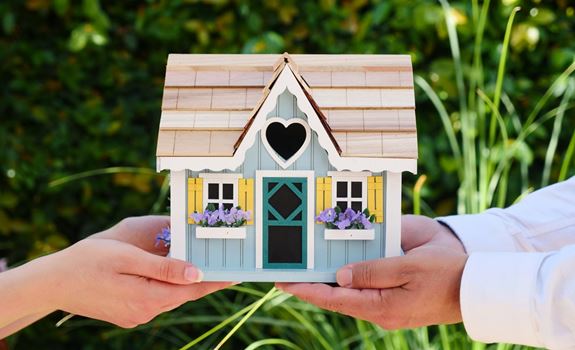Buying a new home isn’t only a big-ticket investment; it’s also a life-altering decision. Specific situations often warrant an individual’s decision to move. Most of these involve changes in the family or career, like an out-of-state job offer.
Whatever the reason, getting a new home is a crucial decision that requires careful planning. Here are the signs that might compel you to consider moving to a new property.
#1 You’ve Found a Great Mortgage Deal
Because of the amount involved in buying a new home, most aspiring homeowners will have to rely on a mortgage to make their dreams come true. Unfortunately, young professionals often have to wait several years to qualify for a home loan. They’d have to build enough credit scores to access good deals.
Besides credit scores, lenders will have to check a borrower’s capacity to pay by checking income sources and overall financial status. If you find yourself qualifying for a home loan with low-interest rates, it’s a good sign that you need to purchase your property.
#2 You’re Offered a Promotion Out-Of-State
Job promotion is always good news, but maybe not so much if it requires you to move out of town. No matter how you feel about relocating, take your job promotion as a sign that you need to buy a new home if you can already afford it. In addition, make your move to a new beginning less stressful by hiring a reputable interstate moving company.
#3 You’re Spending Too Much on Your Current Home
If you’ve chosen to live in an old home to save on costs, you might soon find yourself shelling out cash for costly repairs. Roof installations, cooling and heating systems repair, kitchen, and bathroom can set you back anywhere from a few hundred to several thousand dollars in recurring costs, negatively impacting your financial status.
Instead of perpetually paying for maintenance and remediation charges, it’s time to consider buying a newer home. Freshly-built properties require little to maintain or fix and often come with warranties.
#4 You’ve Got a Growing Family
If you’re expecting a second or third child, a one-bedroom apartment is never going to be enough. More so if you’ve got teenagers who prefer to have the room by themselves or if you’re planning to take your aging parents with you.
Saving up for your growing family will require proper planning and careful consideration. If you’re getting a fully-built home, check if it ticks all the boxes—from the number of rooms to accessibility and safety, besides other amenities. If you’ve settled on one, add your personal touch while considering these trends in decorating your home this year.
#5 A Favorable Real Estate Market
According to the National Association of Realtors, or NAR, the pandemic has surprisingly fueled an increase in demand and actual spending in the real estate market. Since 2020, home sales have increased, driven by shortages in supply and reduced mortgage rates. As a result, homes are taken off from the market faster than they used to.
If you’re eyeing to sell your current home to buy a new one, this might be the best time to do it. Putting your home up for sale will net you higher returns, getting you enough money to pay for your new property.
#6 You’re Ready to Move to Your Forever Home
Most young families choose to stay in starter homes as they build enough savings to find a more extensive property that they can then call their forever home. Starter homes are often a condominium or small property that’s priced reasonably. The trade-off for affordability comes in the form of fewer amenities and locations. Still, getting one is better than renting.
If circumstances dictate that you no longer have to put your home-buying plans on hold, or if you’ve gotten a raise to complement your savings, start shopping around for bigger and better homes.
#7 You’ve Found Yourself Needing a Smaller Space
Whether you’re an empty nester or are going through a divorce, you may find yourself wanting to get a new living space, preferably smaller than your current one. A smaller home typically requires fewer maintenance costs, upgrading, and sprucing up.
Millennials are also gravitating towards smaller homes because they’re marrying later in life and prefer not to have children. This trend will likely impact the real estate market, as millennial households are expected to reach 40 million by 2025, per estimates from the Harvard Joint Center for Housing Studies.
Final Thoughts
The decision to buy a new home is often tied to the different life stages a homeowner goes through. For instance, expanding families need bigger houses, while millennials and empty-nesters tend to move into smaller living spaces.
Whatever your decision may be and in whichever stage you are in your life and career, make sure to compare mortgage interest rates, terms, and your family’s needs and lifestyle before getting your new home.
Published in: Home advice | Author: Lynn








